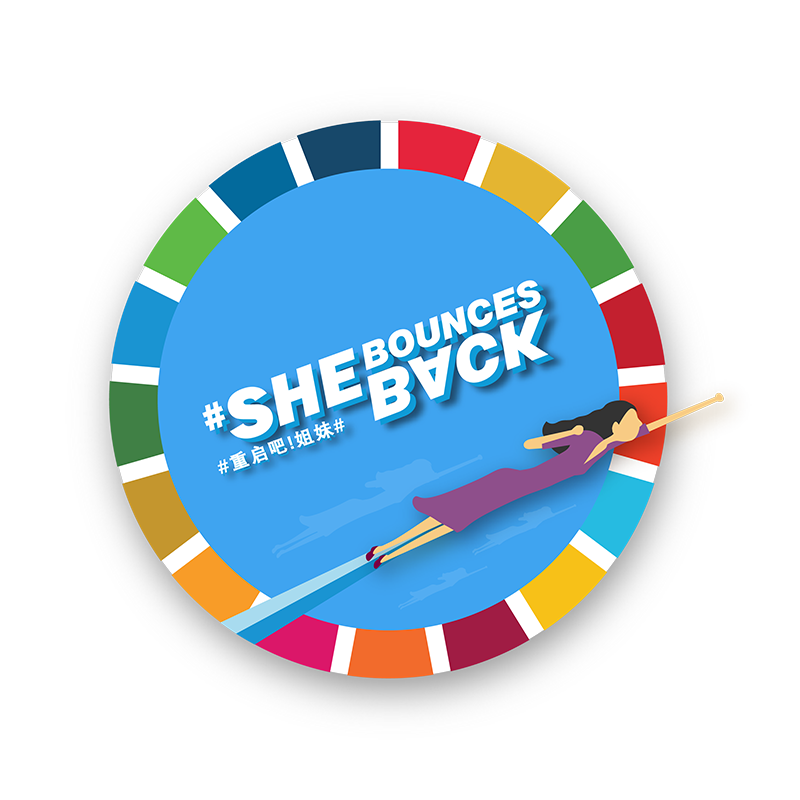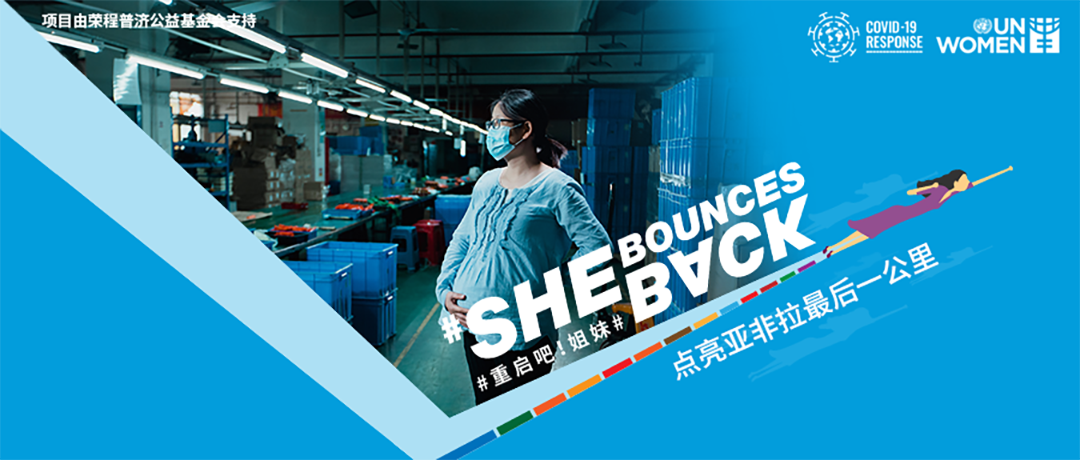
Li Xia: Lighting up lives around the world
Li Xia founded Shenzhen Power-Solution to make affordable, safe and environmentally-friendly lighting for those at the bottom of the economic pyramid. Her customer base reaches across Asia, Africa and Latin America, where many people still rely on kerosene lamps or candles, at a high cost to the environment. When the low purchasing power of their customers dropped even further during the pandemic, a heavily pregnant Li and her team knew that they would need to innovate to keep their business and mission on track.
“At the beginning of the pandemic my main worry as a business owner was that a staff member would get infected and that the whole factory would be put in quarantine. At the same time I was pregnant and almost forty years old. I’d only been sleeping for a few hours each day and I was scared that my baby’s health might be affected by my stress levels or exposure to the virus at work.
The reopening of the factory was repeatedly delayed because we couldn’t get hold of sufficient anti-pandemic supplies: we would hear that disinfectant or masks were available somewhere, but by the time we arrived they were already sold out. Yet working together, we were one of the first companies to reopen.
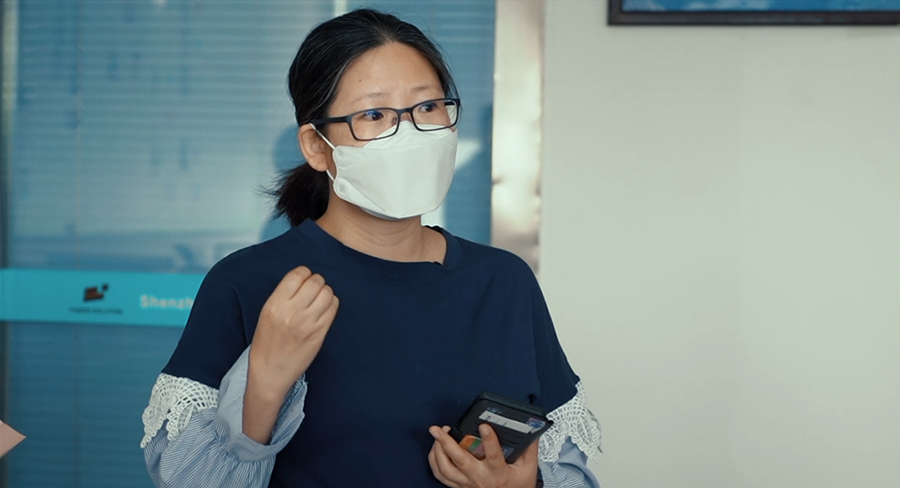
Li Xia speaks at an all-staff meeting on the
first morning the company reopened. Photo: Li Yilii
On our first day back I told my employees that the company had been in business for 15 years and that they, and the trust of our long-term customers, were our most valuable assets. I told them that together we could overcome any difficulty – but I was worried. Only nine of our 60 workers had initially returned to work but we had 28 orders waiting. The price of our raw materials had risen as production was suspended. Worse yet, some of our foreign customers then cancelled their orders or asked for delayed shipping. This meant that we had a backlog of goods worth 400,000 yuan in the company’s warehouse. Shortly after that, several more customers cancelled their orders and this cut off our cash flow.
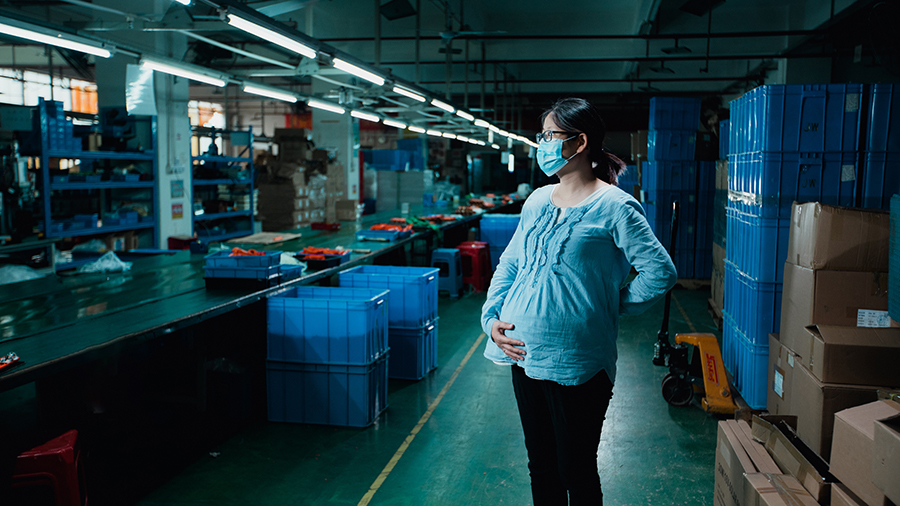
Li Xia at the production department of
Shenzhen Power-Solution. Photo: Li Yili
I was worried that we wouldn’t be able to pay our staff their wages on time and we all went through a lot of stress. Even our customers were telling me to take more rest. We started to search for good domestic material suppliers to replace the original ones and applied unsuccessfully for loans from banks, which felt that our customer-based in developing countries was too high risk during the pandemic. This meant that we needed to rely entirely on self-funding.
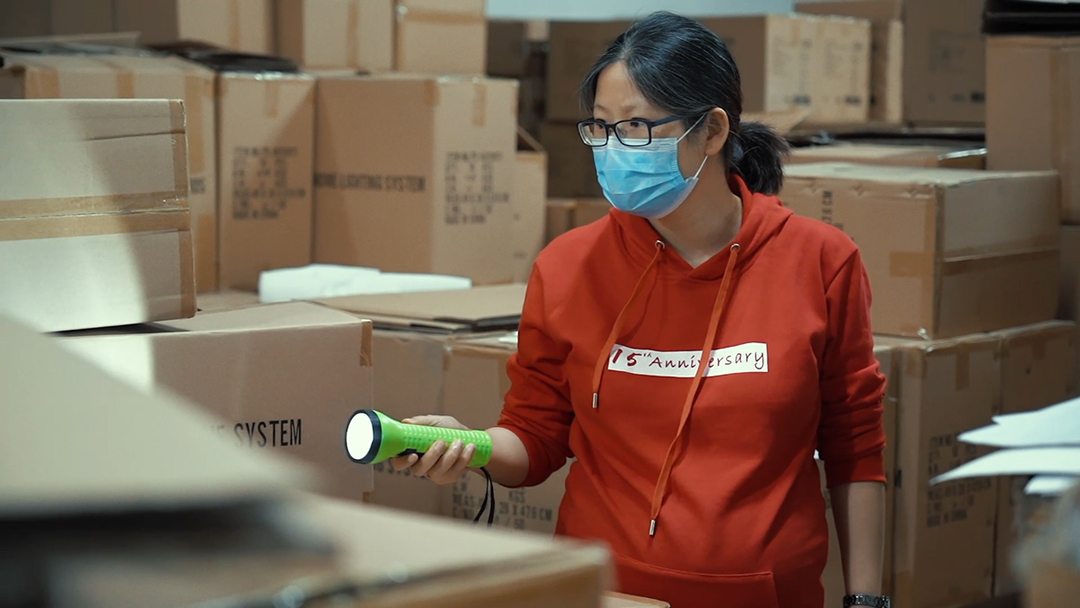
Products pile up in the warehouse. Photo: LiYili
The Canton Fair was a turning point for us. It had been moved online, and through it we managed to become suppliers for several big multinational companies, delivering goods worth millions of CNY. This hugely boosted our confidence, so that when there was a shortage of anti-pandemic supplies we even contracted a mask production line to work for us, increasing the supply of masks to the market and somewhat alleviating our cash flow issue.
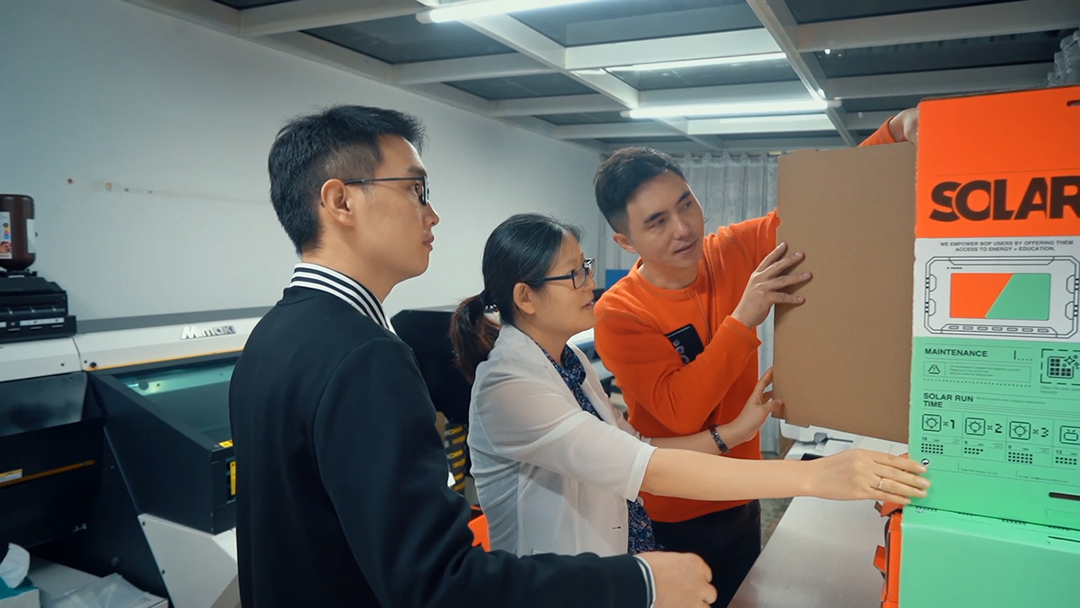
Li Xia (middle) and her team strategize on how
to improve and expand the business. Photo: Li Yili
The crisis made us aware of underlying problems in the company, so after reopening we looked at how we could improve; we then began to develop new antibacterial products, and to move much of our operation online. This was unimaginable before for a traditional manufacturing enterprise like us!
I saw that working women faced much greater challenges during the pandemic compared to working men, but their resilience was truly inspiring. Many female employees were also mothers, with kids attending school online from home. At lot of them were forced to leave their jobs because of this, and those who didn’t were exhausted every day because they were essentially doing two full-time jobs. As the head of a company I was under even greater pressure.
Despite everything, we have thrived. There were no layoffs, no pay cuts, and we didn’t suspend production; we even took on new employees and new customers. I gave birth to a healthy baby, and am now a tired but happy, breastfeeding working mother.
I strongly believe that this era should better support women’s ambitions. As our case shows, if given a fair chance, women can make outstanding achievements.”
